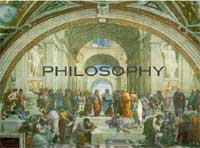|
|||||||||||||||||||||||||||||||||||||||||||||||||||||
| Freedom, Alienation and Modern Life - ARTS2362 | |||||||||||||||||||||||||||||||||||||||||||||||||||||

Description Subject Area: Philosophy This course examines what it means to be modern. It also examines both those who problematise the idea of modernity as well as the key critics of modernity. Defenders of modernity argue the rise of scientific rationality has liberated us from nature, the dogmatic authority of religion and tradition and made individual freedom possible for all. Critics of modernity argue the price of this faith in progress has been an alienation from nature, ourselves and a wholesale instrumentalising of nature and humanity. These concerns are central to the philosophical problem of modernity. In this context the course examines the following themes: the critique of instrumental reason, the question of technology, the idea of historical progress, the character of human freedom and the possibility of a postmodern age. These issues are explored in the writings of some of the most well-known figures in European philosophy. Figures that may be examined include: St Augustine, Rousseau, Kant, Hegel, Heidegger, Lukács, Arendt, Adorno, and Lyotard. |
|||||||||||||||||||||||||||||||||||||||||||||||||||||


